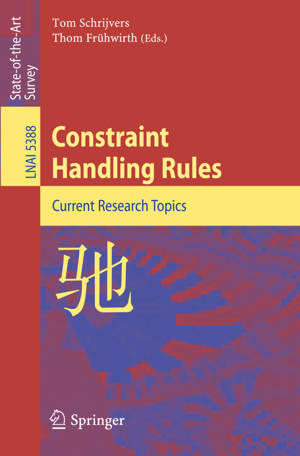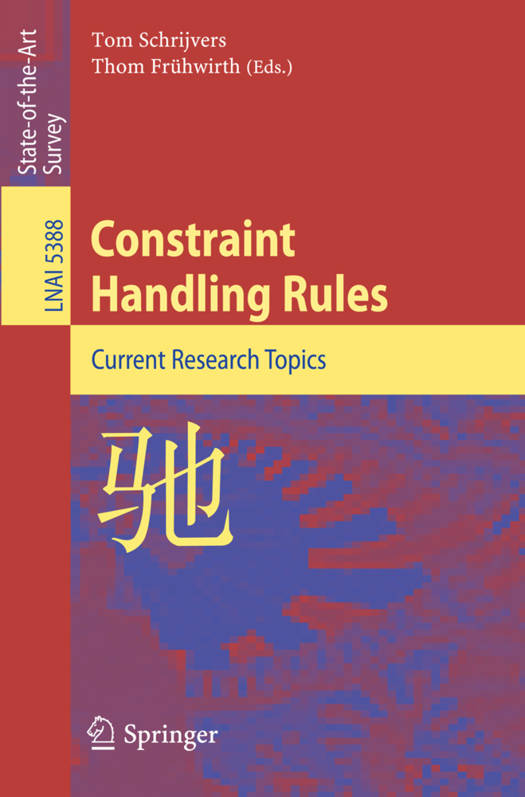
- Afhalen na 1 uur in een winkel met voorraad
- Gratis thuislevering in België vanaf € 30
- Ruim aanbod met 7 miljoen producten
- Afhalen na 1 uur in een winkel met voorraad
- Gratis thuislevering in België vanaf € 30
- Ruim aanbod met 7 miljoen producten
Zoeken
Constraint Handling Rules
Current Research Topics
Paperback | Engels | Lecture Notes in Computer Science | Lecture Notes in Artificial Intelligence | nr. 5388
€ 52,95
+ 105 punten
Omschrijving
The ConstraintHandling Rules (CHR) languagecameto life morethan 15 years ago.Sincethen, ithasbecomeamajordeclarativespeci?cationandimplemen- tion language for constraint-based algorithms and applications. In recent years, the ?ve Workshops on Constraint Handling Rules have spurred the exchange of ideas within the CHR community, which has led to increased international collaboration, new theoretical results and optimized implementations. The aim of this volume of Lecture Notes in Ariti?cial Intelligence was to attract high-quality research papers on these recent advances in CHR. The 8 papersinthis issuewereselectedfrom11submissionsaftercarefulreviewingand subsequent revisions. Each paper was reviewd by three reviewers. The accepted papers represent some of the research teams on CHR around the world. It is not by accident that the currently most active research group is featured here with three articles. We also would have liked to see contributions from other CHR teams, but space is limited and the reviewers took their job seriously. After an introductory article that foreshadows an upcoming monograph on CHR, the accepted papers span a range of current research topics in the CHR community. It goes from extending the CHR language with search facilities and the related adaptive framework, and from generating rules from speci?cations of constraint solvers to implementing abductive probabilistic reasoning. They cover the theory that is a compositional semantics for CHR and ?nally describe e?cient implementations of CHR in traditional mainstream programming l- guages and compiler optimizations in the context of the re?ned semantics of CHR. Wewouldliketothanktheauthorsofsubmittedpapersandthemanyrevi- ers for their contribution in making this collection of researchpapers possible.
Specificaties
Betrokkenen
- Uitgeverij:
Inhoud
- Aantal bladzijden:
- 245
- Taal:
- Engels
- Reeks:
- Reeksnummer:
- nr. 5388
Eigenschappen
- Productcode (EAN):
- 9783540922421
- Verschijningsdatum:
- 18/12/2008
- Uitvoering:
- Paperback
- Formaat:
- Trade paperback (VS)
- Afmetingen:
- 155 mm x 234 mm
- Gewicht:
- 362 g

Alleen bij Standaard Boekhandel
+ 105 punten op je klantenkaart van Standaard Boekhandel
Beoordelingen
We publiceren alleen reviews die voldoen aan de voorwaarden voor reviews. Bekijk onze voorwaarden voor reviews.










